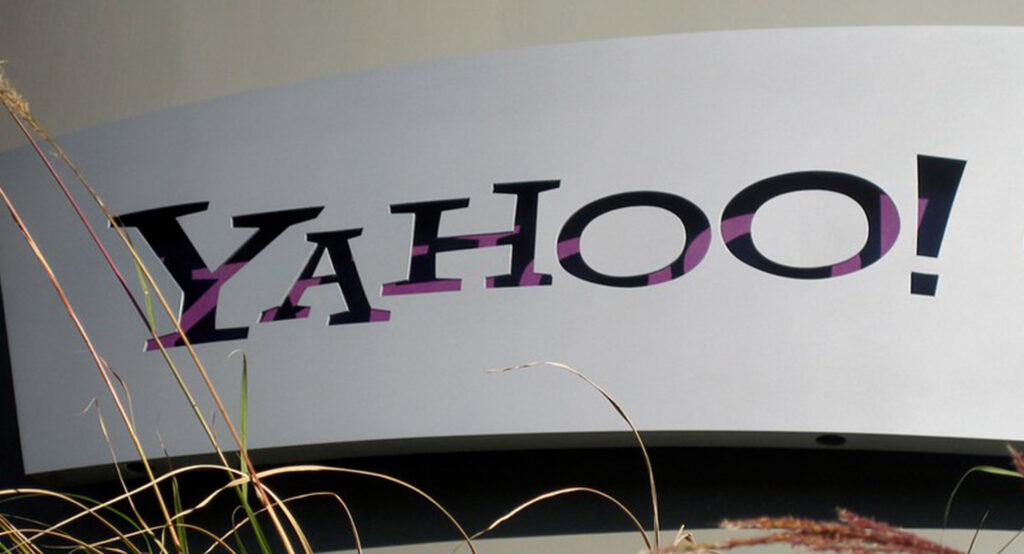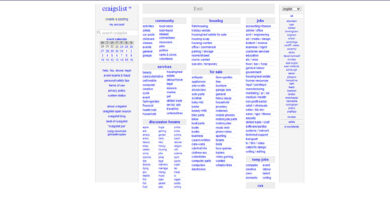Yahoo 14 Captivating Facts
Yahoo is an American technology company that offers a variety of online products and services, including search engines, email services, news, finance, and sports information, and more. Here are some true facts about Yahoo.

Yahoo was founded in January 1994 by Jerry Yang and David Filo, two graduate students at Stanford University.
1 They created a website called “Jerry and David’s Guide to the World Wide Web,” which was a directory of other websites that they found interesting or useful.
Initially, Yahoo was a simple directory of websites, but it quickly grew in popularity as more and more people began using the internet. The founders eventually turned Yahoo into a full-fledged search engine, which allowed users to search for specific websites or topics.
One of the key factors in Yahoo’s early success was its ability to attract users with a clean, simple interface that was easy to use. This made it popular among novice internet users who were just starting to explore the web.
In 1996, Yahoo went public and raised $33.8 million in its initial public offering (IPO). The company continued to grow rapidly, and by the late 1990s, it had become one of the most popular websites on the internet, with millions of users around the world.
During the dot-com boom of the late 1990s, Yahoo’s stock price soared to dizzying heights, making many of its early investors very wealthy. However, when the dot-com bubble burst in the early 2000s, Yahoo, like many other internet companies, saw its stock price plummet.
In the years that followed, Yahoo struggled to keep up with competitors like Google, Facebook, and Amazon, which were all rapidly expanding their online empires. Yahoo attempted to reinvent itself several times, launching new products and services, but it never regained its former glory.
In 2016, Yahoo was acquired by Verizon Communications for $4.8 billion, and it became part of a new company called Oath. However, the Yahoo brand name continued to exist, and many of its popular services, like Yahoo Mail and Yahoo Finance, remained in use.
In 2021, Verizon announced that it was selling Yahoo and AOL to a private equity firm called Apollo Global Management for $5 billion. The sale marked the end of an era for Yahoo, which had once been a dominant force in the world of tech and the internet.
The name “Yahoo” is an acronym for “Yet Another Hierarchical Officious Oracle.”
2 According to the company’s official history, the name “Yahoo” was chosen by co-founder David Filo, who reportedly said that it stood for “Yet Another Hierarchical Officious Oracle.”
The name was meant to be a tongue-in-cheek reference to the fact that Yahoo was initially just another directory of websites, and that there were already many other similar directories available on the internet at the time.
However, the founders later admitted that they also liked the fact that the name “Yahoo” was a playful and memorable word that could help the company stand out in a crowded marketplace. They felt that it was important to have a name that was easy to remember and easy to spell, so that people could easily find their website.
Over time, the name “Yahoo” became synonymous with the company and its various services, and it played a key role in helping the company establish a strong brand identity. Today, even though Yahoo has been acquired by other companies and its fortunes have waxed and waned over the years, the name “Yahoo” remains a well-known and recognizable part of the internet landscape.
Yahoo’s original purpose was to provide a directory of websites organized in a hierarchical fashion, similar to a library catalog.
3 In its early years, Yahoo primarily earned revenue through advertising and sponsorships, as well as by providing premium services such as Yahoo Mail Plus and Yahoo Small Business.
At the time of its founding, the internet was still a relatively new and untested medium for advertising, but Yahoo’s founders saw an opportunity to create a platform that would connect advertisers with internet users.
To do this, they created a directory of websites that was organized into categories and subcategories, making it easier for users to find the content they were looking for. This directory was the foundation of Yahoo’s search engine, which quickly became one of the most popular and widely used search engines on the internet.
As Yahoo’s user base grew, so did its advertising business. Advertisers were able to target their ads to specific users based on their interests and demographics, and Yahoo was able to charge premium prices for this targeted advertising.
In addition to advertising, Yahoo also generated revenue through sponsorships and partnerships with other companies. For example, it partnered with companies like AT&T and Visa to provide co-branded services and promotions to its users.
Over time, Yahoo expanded its business to include other services like email, news, and e-commerce, but advertising remained a key part of its revenue model throughout its history.
Yahoo became one of the most popular websites on the internet in the late 1990s and early 2000s, and its stock price skyrocketed during the dot-com boom.
4 Its directory-based search engine, along with its other services like email, news, and online shopping, attracted millions of users from around the world.
In 1998, Yahoo went public and its stock price skyrocketed, making it one of the most valuable companies on the internet at the time. Its success also made its co-founders, Jerry Yang and David Filo, billionaires.
Yahoo continued to grow throughout the early 2000s, expanding its services and acquiring other companies like eGroups, which added a popular email discussion forum platform to Yahoo’s suite of services. In 2003, Yahoo acquired Overture Services, a company that provided search engine advertising services, further strengthening Yahoo’s advertising business.
However, by the mid-2000s, Yahoo began to face increased competition from other internet companies like Google, which had launched its own search engine and quickly became the dominant player in the search market. Yahoo struggled to keep pace with Google and other competitors, and its market share began to decline.
Despite efforts to reinvent itself with new products and services, Yahoo’s decline continued throughout the 2010s, and in 2016, it was acquired by Verizon Communications. Today, Yahoo still exists as a brand under Verizon’s ownership, but its influence and impact on the internet have diminished considerably from its heyday in the late 1990s and early 2000s.
In 2000, Yahoo reached an agreement to acquire online video platform Broadcast.com for 5.7 billion worth of Yahoo stock.
5 At the time, Broadcast.com was a popular platform for streaming live events and providing online multimedia content. The acquisition was seen as a major strategic move for Yahoo as it sought to expand its presence in the emerging online video market.
However, the acquisition did not turn out to be as successful as Yahoo had hoped. Broadcast.com struggled to integrate with Yahoo’s existing services, and its revenue growth failed to meet expectations. Additionally, the dot-com bubble burst soon after the acquisition, leading to a decline in the overall value of internet companies like Yahoo.
In the end, the Broadcast.com acquisition became a cautionary tale for tech companies looking to expand aggressively through acquisitions. Yahoo eventually shut down the Broadcast.com platform and wrote down the value of the acquisition, ultimately leading to a significant loss for the company.
In the mid-2000s, Yahoo faced increased competition from other internet companies such as Google and Facebook, and struggled to keep up with changing technology trends.
6 Yahoo had been one of the dominant players in the internet industry in the late 1990s and early 2000s, but it failed to keep pace with the rapid changes that were taking place in the industry at that time.
Google, in particular, emerged as a major rival to Yahoo in the mid-2000s, thanks to its powerful search engine and innovative advertising model. Google’s search engine quickly became the go-to source for internet users looking for information, and its advertising platform allowed businesses to target customers with precision. Meanwhile, Facebook was gaining traction as a social networking platform, and was quickly becoming a major player in the online advertising space.
Yahoo’s failure to keep up with these changing trends ultimately led to its decline. The company’s revenue and user base began to shrink, and it struggled to find a clear direction for its business. In 2016, Yahoo was acquired by Verizon Communications for $4.48 billion, effectively marking the end of an era for the once-dominant internet company.
In 2008, Yahoo turned down a $44.6 billion acquisition offer from Microsoft.
7 In February 2008, Microsoft made an unsolicited bid to acquire Yahoo for $44.6 billion, which represented a significant premium over Yahoo’s market value at the time. The offer included both cash and Microsoft stock.
Yahoo initially rejected the offer, citing concerns that the bid undervalued the company and that a merger with Microsoft would face significant regulatory hurdles. However, after several months of negotiations, Yahoo and Microsoft reached an agreement in July 2009 to partner on search advertising.
Under the terms of the deal, Microsoft’s Bing search engine would power Yahoo’s search results, while Yahoo would handle sales for both companies’ search advertising. The partnership was seen as a way for both companies to better compete with Google, which dominated the online search market.
However, the partnership ultimately fell short of expectations, and Yahoo continued to struggle financially in the years following the failed acquisition. In 2016, Yahoo agreed to be acquired by Verizon for $4.8 billion, marking the end of an era for one of the internet’s pioneering companies.
In 2012, Yahoo hired Marissa Mayer, a former Google executive, as its CEO in an effort to turn the company around.
8 Under Mayer’s leadership, Yahoo underwent a major restructuring, with a focus on mobile and content-driven services.
In 2013, Yahoo acquired blogging platform Tumblr for $1.1 billion, a move aimed at expanding its content offerings.
9 In May 2013, Yahoo announced that it had reached an agreement to acquire Tumblr, a popular blogging and social media platform, for $1.1 billion in cash. The acquisition was seen as a bold move by Yahoo to expand its reach in the social media space and attract a younger user base.
At the time of the acquisition, Tumblr had over 300 million monthly active users and over 120,000 new users joining the platform every day. However, the acquisition proved to be a controversial one for Yahoo, with many Tumblr users expressing concern that the platform would be “ruined” by the acquisition and its integration into the larger Yahoo ecosystem.
Despite these concerns, Yahoo initially allowed Tumblr to operate as an independent entity, with founder David Karp remaining in his role as CEO. However, in the years following the acquisition, Tumblr struggled to grow its user base and generate meaningful revenue, and Karp eventually left the company in 2017.
In 2019, Verizon, which had acquired Yahoo in 2017, announced that it was selling Tumblr to Automatic, the parent company of WordPress, for a reported $3 million, marking a significant loss for Yahoo and its efforts to expand into the social media space.
In 2016, Yahoo disclosed that it had been the victim of a massive data breach in 2013, which compromised the personal information of hundreds of millions of users.
10 The data breach, along with other issues related to Yahoo’s business performance, led to a decline in the company’s stock price and reputation.
In 2017, Verizon Communications acquired Yahoo’s core internet business for $4.48 billion, marking the end of Yahoo’s era as an independent company.
11 After the acquisition, Yahoo was integrated into Verizon’s media division, along with other properties such as AOL and HuffPost.
In 2019, Verizon sold off Tumblr to Automattic, the parent company of WordPress.
12 The move came after years of struggles for Tumblr, which had failed to grow its user base and generate significant revenue following its acquisition by Yahoo in 2013.
Under the terms of the deal, Automattic acquired all of Tumblr’s assets, including its technology, user data, and intellectual property, but did not assume any of its liabilities or obligations. The acquisition was seen as a strategic move by Automattic to expand its reach in the social media space and attract new users to its platform.
Following the acquisition, Automattic announced that it would operate Tumblr as a separate entity, with the platform continuing to be led by its existing team and maintaining its distinct brand identity. The move was welcomed by many Tumblr users, who had expressed concern that the platform would be “ruined” by another acquisition and integration into a larger corporate structure.
Today, Yahoo continues to offer a range of online products and services.
13 Some of its most popular offerings include:
- Yahoo Mail: One of the world’s largest web-based email services, with over 225 million active users.
- Yahoo News: A news aggregator that provides users with the latest news stories from around the
- world, as well as original reporting and analysis.
- Yahoo Finance: A financial news and information website that offers users access to real-time stock quotes, financial news, and analysis.
- Yahoo Sports: A sports news and information website that covers a wide range of sports, including football, basketball, baseball, hockey, and more.
- Yahoo Search: A search engine that allows users to search the web for information and content.
In addition to these core offerings, Yahoo also provides a range of other products and services, including online advertising, content creation tools, and mobile apps. While it may no longer be the dominant force it once was, Yahoo remains an important player in the online world and continues to attract millions of users to its products and services.
The Yahoo homepage remains one of the most popular websites on the internet, attracting millions of visitors every day.
14 While Yahoo’s influence and relevance have declined in recent years, the company remains a major player in the online media and advertising industries.
Yahoo’s legacy as a pioneering internet company and its role in shaping the early days of the internet make it an important part of the history of technology and online culture.




